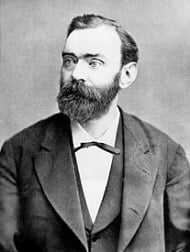Without a doubt, the most coveted honor in any academic field, including life sciences, is the Nobel Prize. At a lavish ceremony held annually at Stockholm, the laureate receives a regal gold medal, an exclusive diploma and a hefty cash prize-currently amounting to USD1.2 million. In addition, the laureate also receives the ultimate worldwide validation of his or her achievement-an accolade on its own.
Established as a result of the will written by Alfred Nobel, the Prize is intended to recognize people who have made significant contributions to the fields of physics, chemistry, medicine or physiology, literature, peace and economics. A prolific chemist and engineer himself, Alfred Nobel built his fortune through copious inventions. In an attempt to be remembered favorably by the world, he left his fortune for the recognition of innovators who produced knowledge yielding the “greatest benefit to mankind.”
Yuri Milner, a modern-day magnate, seems to have a similar vision. An entrepreneur and venture capitalist by profession, Milner started out studying theoretical physics, but gave it up to pursue business. The result: a billion dollar fortune.
Perhaps to commemorate his first love for Physics, Milner, in 2012, established the Fundamental Physics Prize-given annually to a significant contributor to the field of physics. The laureate receives USD 3 million as part of the recognition- more than double the amount given for the Nobel Prize. What’s more? Milner did not stop with Physics.
In 2013, he teamed up with other opulent giants of our times, including Arthur Levinson, chairman of Apple Inc. and Genetech, Sergey Brin, co-founder of Google, Anne Wojcicki, a biologist and an entrepreneur, Mark Zuckerberg, founder of Facebook with wife Priscilla Chan, to establish the Life Sciences Breakthrough Prize, awarded annually to six life science researchers. The prize also includes USD 3 million given to each of the six recipients.
These awards and the large sums of money they carry have received mixed reviews. Some welcome such monetary support to brilliant minds (considering that the Nobel prize money is split even further among multiple laureates); others scorn at the prizes, accusing them of attempting to buy the prestige of a Nobel Prize.
I wonder how Alfred Nobel would feel about these prizes. Seeing as how he wanted his own money to be given to discoverers who benefited mankind, I can’t help but believe that he would indeed welcome these upcoming prizes. And let’s face it. Research is expensive. USD 3 million sounds like a big amount at first but is nothing that a handful of genome-sequencing projects cannot exhaust!
